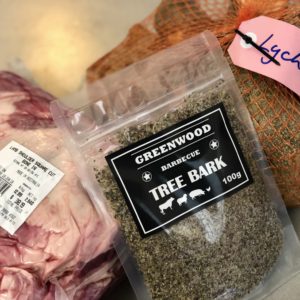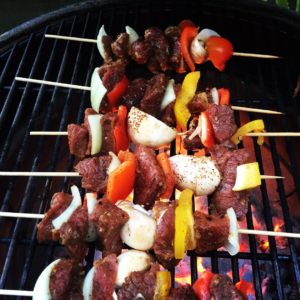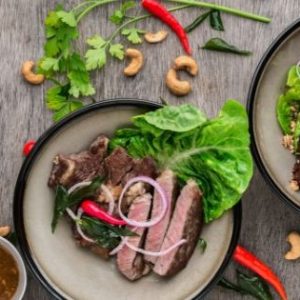How to make homemade dry BBQ rubs
The simplest answer here is to just give it a go. Making your own BBQ dry rubs for Chicken is super easy. There are no rules to follow as everyone has a different taste palette and different expectations for each meal. Here are some guiding principals and the basics for you to build on and to tweak to your own liking.
How to store your homemade dry rubs
As dry BBQ dry rubs are made from a mixture of dry ingredients storage is pretty easy. Just be sure to store your BBQ dry rubs in an airtight container in a cool dark environment and you should be able to store any of your favourites for up to a year.
If you want to maintain the ultimate freshness you could also look at the many options of vacuum sealers, especially the models that allow for vacuum sealing of storage containers.
For some more information on vacuum sealer options check out this post.
Best kitchen tools to make life easy
As all of the ingredients for your dry bbq rubs are by nature, dry and in powder/granule form you should need any special kitchen utensils. However, there certainly are a couple of items that will make your life easier.
Key Ingredients
Salt – Important considerations
All salts are not created equal! Salt comes in many different forms, although the fundamental elements are the same, the physical form has a huge impact on the flavour and salt content of your bbq dry rub.
As an example of the differences of salt types, Morton’s Table Salt has 76.0g of salt to a ¼ cup where Maldon Sea Salt has 33.2g – almost double.
For more information, check out this article from Mike Vrobel from https://www.dadcooksdinner.com, it is a really good and very detailed article – https://www.dadcooksdinner.com/salt-by-weight/
Sweet
The sweetness can come from any form of sugar but the most common forms are brown sugar, cane sugar and turbinado sugar. Where possible, try to steer clear of the heavily refined ( white) sugars. Adding sugar to your BBQ dry rub does a couple of things to whatever you are cooking.
The obvious one is the flavour that it will impart. The second and in my opinion the most important impact is the caramelisation that the added sugar gives. That super delicious crust that is formed as the sugar cooks and transforms. There is a point of caution here, if you push the temperatures too high you run the risk of burning the sugars and imparting an unpleasant flavour.
Savoury
In this category are your salts, mustard, Chilli (powder or flakes), paprika, cumin, rosemary, celery salts etc.
Almost endless options and really depends on the profile you are looking for. Each regional cuisine tends to have a unique profile, then within those will be local variances.
Spicy
Pretty straight forward, chilli powder, black pepper, white pepper, chilli peppers and to really turn up the heat look for the cayenne, chipotle or to really put some fire on there – ghost pepper or reaper powder.
The key here is to start with small amounts and add small amounts at a time.
How to apply your BBQ Dry Rub
I always like to apply the bbq dry rub to chicken that has been rubbed with oil. This gives the rub something to adhere to. For chicken, I find that the BBQ Dry rub is best applied at least an hour before cooking and for other meats, like pork, I like to leave for as long as possible, even overnight.
Rubs with high sugar content are best used in a way that allows you to still see the meat underneath. Too much and you risk the sugars burning during the cooking process, especially if you are cooking directly over the heat source.
If you still can’t decide whether to use a dry BBQ rub or marinade check out our recent article comparing each method.
Basic Chicken Dry Rub
- ½ cup brown sugar
- ⅓ cup chilli powder
- 2 tablespoons kosher salt
- ½ tablespoon fresh ground black pepper
- ½ tablespoon garlic powder
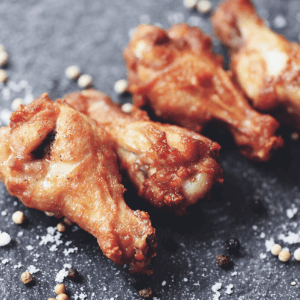
Mediterranean Chicken Rub
- 1 tablespoon basil
- 2 tablespoons oregano
- 1 teaspoon thyme
- 2 tablespoons rosemary
- 1 1/2 tablespoon garlic powder
- 1/2 tablespoon onion powder
- 1/2 tablespoon dill
- 1 teaspoon black pepper
- 3/4 teaspoon kosher salt
- 1/4 teaspoon red pepper flakes
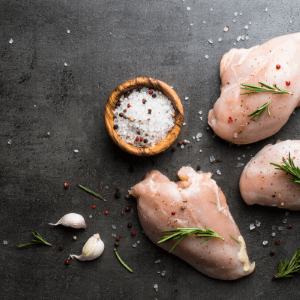
Lemon Garlic Pepper Chicken Rub
- 2 tablespoons of dried lemon zest
- 1 teaspoon black pepper
- 2 teaspoon garlic powder
- 1/2 teaspoon onion powder
- 1/2 teaspoon dry thyme
- 1/2 teaspoon kosher salt
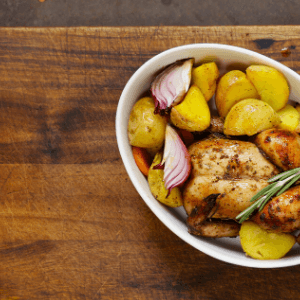
Middle Eastern Influence
- 1 Tbsp Kosher salt
- 1 tsp paprika
- ½ tsp ground sumac
- ½ tsp onion powder
- ½ tsp garlic granulated
- ½ tsp freshly ground black pepper
- ½ tsp dried parsley
- ¼ tsp turmeric
- ½ tsp sugar
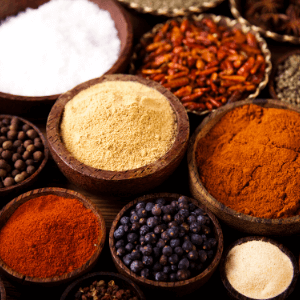
Creole Style Chicken Rub
- 4 Tbsp paprika
- 4 Tbsp granulated garlic
- 2 Tbsp granulated onion
- 1 Tbsp freshly ground black pepper
- 1 Tbsp white pepper
- 2 Tbsp dried oregano
- 2 Tbsp dried thyme
- 2 Tbsp dried basil
- 1 Tbsp light brown sugar
- 2 Tbsp cayenne pepper
- 1 tsp ground cumin
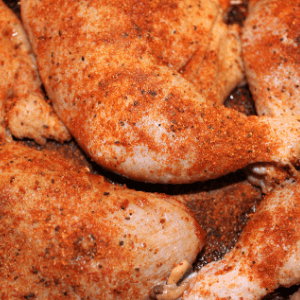
Conclusion
Now that you have some inspiration, what is stopping you from giving a homemade BBQ dry rub ago?
Benefits
- Cheaper
- Known ingredients
- Make it to your own personal taste
Don’t get me wrong, there are some super amazing commercial rubs around and I use my fair share of store-bought rubs. I just think there is room for all plus it gives you that extra element to take your BBQ to the next level.
Till next time.
Joe On!

